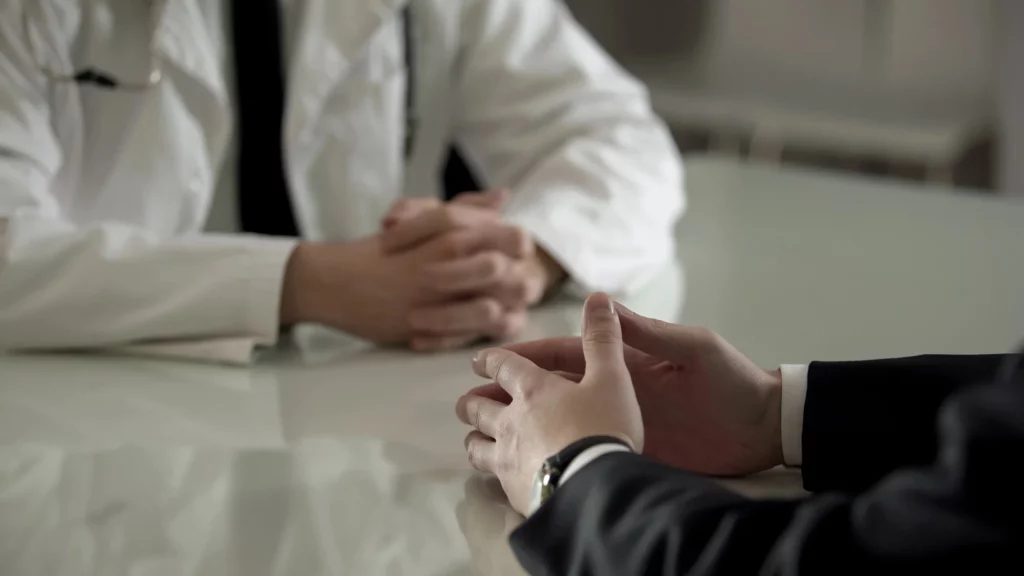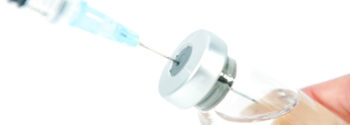Approximately 280 million people have depression, according to the World Health Organization. Although it’s 50 percent more common among women, men, too, struggle with this mental disorder.
Symptoms are many and can vary among people, but you’ll most often hear of loss of pleasure in the things you used to like, poor sleep, lack of concentration, and changes in appetite. And while men can experience all that, erectile dysfunction often also comes hand in hand.
Erectile or sexual dysfunction is not a direct depressive symptom, but depression can often lead eventually to erectile dysfunction. On top of that, some medications used to treat depression can also be the cause of ED.
There’s more to this story, so let’s explore it in a little more detail.
Defining Erectile Dysfunction
According to the Cleveland Clinic, erectile dysfunction is the inability to get or maintain an erection long enough for sexual intercourse. There are many causes, mostly tied to neurological conditions, injuries, poor blood pressure, or other issues with blood vessels.
However, sometimes, the cause can also be a mental health condition.
Main Risk Factors for Erectile Dysfunction
Erectile dysfunction can be common and can happen to anyone, but it’s also not random. There are some men are at greater risk than others, depending on the conditions they live with or lifestyle choices they make.
Some risk factors are more serious and difficult to treat, while others are easier to deal with.
Cardiovascular Diseases and Blood Flow Issues
Problems with your cardiovascular system are among the main factors that increase a man’s risk of erectile dysfunction.
When your arteries are affected by atherosclerosis, there’s a reduction in the blood flow, which can affect your erection. The arteries in your penis are quite narrow, which means they’re among the first ones to be affected. For this reason, erectile dysfunction can be among the first signs there’s something wrong with your blood vessels.
It’s important to see a doctor when you experience ED because you might just have an even more serious problem at hand.
Psychological Factors for Erectile Dysfunction
Body and mind are interconnected and can only operate properly if they’re both healthy. For this reason, psychological factors are equally as important as physical.
- Anxiety
When you’re anxious, your body is often in a state of fight or flight. The survival mode might enhance some things, but it can definitely take a toll on your erection. Anxiety causes the cortisol in our body to rise and inhibit testosterone, which is responsible for your libido or sex drive. This change in hormones can affect your erection in different ways. It can make it hard to achieve an erection or maintain it long enough.
- Depression
Depression is a serious mental disorder that affects your entire life, including self-care, job, relationships, and sleep. It’s important to treat it promptly so you can get back to your normal everyday activities as best as possible. And, while depression affects all aspects of your life, it also can affect your libido. Even if you don’t experience a reduced sex drive, you might very well see changes in your erection.
According to Urology Associates Medical Group, men with clinical depression are twice as likely to get erectile dysfunction.
Psychosocial Risk Factors
Physical and psychological risk factors are not where things end. Sadly, there are also psychosocial risk factors that some men face.
- Fear of sexual failure
For some people, depression is the cause of erectile dysfunction. For others, sexual failure can cause depression, which is one of the ways the two are connected. Sexual performance anxiety is common among men under 40. If a man experiences erectile dysfunction once or twice in a row, he is more likely to have a fear of sexual failure the next time he’s supposed to engage in intercourse. This type of anxiety can very well lead to depression if not treated through therapy.
- Guilty about sexuality and activities
Sexuality is something we should talk about, but many people still don’t feel comfortable with the subject. This is mostly because they feel guilty about their sexuality and activities they typically find pleasurable. Some things are labeled as fetish, so admitting you like them might not be as pleasant. It can lead to people seeing you differently or even bullying. So, let’s say there’s something particular you like in the bedroom, but you’re afraid of admitting it to your partner. Feeling scared and guilty about it can make it hard for you to achieve an erection or maintain it.
Low Testosterone
Low testosterone levels are another common risk factor, otherwise known as male hypogonadism. Although testosterone isn’t the only thing responsible for your performance and sex drive in general, you’re more likely to have issues with the two when it’s low. Also, it’s common for men to experience erectile dysfunction when their testosterone is low.
Exploring the Relationship Between Depression and ED

Depression is no joke and should be treated as quickly as possible, or it can seriously affect your day-to-day life. This mental disorder can affect not only your erection but also your sex drive and performance as a whole. The relationship between depressive disorder and sexual dysfunction is rather simple and has been studied many times, so doctors should be able to treat ED caused by depression.
Defining Depression
First, let’s go through an essential definition of what depression is.
It is a common and serious medical illness that negatively affects how you feel, the way you think, and how you act. It is characterized by persistent feelings of sadness and loss of interest or pleasure in activities and can lead to a variety of emotional and physical problems. Depression can decrease a person’s ability to function at work and at home.
It is not a simple depressive mood or a bad day, but it’s a persistent mental illness that can lead to negative effects on a sufferer’s quality of life and, in severe cases, can also be associated with thoughts of suicide.
Treatment often involves medication, psychotherapy, or a combination of the two, and sometimes other treatments such as light therapy or lifestyle changes.
Studies That Show Link
According to a study published in 2023, ED can cause depression, but depression is also one of the most common factors for erectile dysfunction in patients. Many times, there are other psychological or mental health problems that first lead to sexual dysfunction and later lead to depression, which is considered comorbid depression, which means it’s part of several disorders affecting the patient at once.
There’s a clear association between depression and a risk of erectile dysfunction, so it’s important to talk to a professional as soon as you notice any signs of either. According to a systematic review and meta-analysis study, psychological support is necessary for those with erectile dysfunction because otherwise, you may see your depression become even worse due its negative effects on your sex life.
Symptoms of Depression
Depression symptoms must last at least two weeks for a diagnosis of depression.
- Sadness, hopelessness, emptiness
Depressed people are very often sad, explaining their mood as hopelessness and tearfulness. Sometimes, they might say they’re not feeling anything, explaining it as emptiness.
- Anger, frustration, irritability
When depressed, people are often easily irritable. They get angry and frustrated over small matters, even those that they never got mad about before.
- Loss of interest
You may notice depressed people no longer enjoy things that once brought them joy. They might not want to participate in activities such as hobbies, sports, social activities, and yes, even sexual activities. Sometimes, they won’t answer the calls or want to talk to you at all.
- Reduced appetite and weight loss
One of the first signs of depression can be reduced appetite and weight loss. You might know someone who can’t eat when they’re stressed or sad. The same happens for some patients with depression. This can lead to weight loss.
- Poor sleep quality
Depression can affect your sleep in different ways. It can cause insomnia, making it difficult to get any sleep at all. It can also cause you to wake up multiple times during the night, making it difficult to achieve quality sleep. In some cases, it can also cause you to sleep too much.
- Inability to focus
Depression can make it difficult to concentrate and focus on performing the smallest of tasks. This can affect your daily life in many ways. It can take a toll on your job, school, or any other daily activities. This can be a big problem for people working demanding jobs or those who drive long distances frequently.
- Suicidal thoughts
According to the Connecticut General Assembly, seven in a hundred men and one in a hundred women with diagnosed depression will go on to complete suicide. As explained in the article, the risk of suicide in people with major depression is about 20 times that of the general population. For this reason alone, it’s important to treat active depression quickly.
- Headache, back pain, and other unexplained physical issues
You may notice frequent headaches, back pain, or other symptoms that really don’t have any explanation. Some people experience nausea or even a feeling of a lump in their throat. Of course, these symptoms are worth checking to ensure nothing is physically wrong with your body and everything is running smoothly. However, symptoms like these can resurface with depression for no other reason.
Effects of Antidepressants on ED
Antidepressants are often necessary for people with depression. Popular medications such as selective serotonin reuptake inhibitors are often used to help with depressive symptoms. However, side effects are many, and one of them are effects on sexual function and sex drive.
According to Harvard Health, antidepressants directly affect erectile function because it can make it difficult to get in the mood or become aroused. However, even if you’re in the mood, you might not stay that way or even reach orgasm due to these medications. The sexual side effects of these medications are, therefore, twofold in that they both limit your desire for sexual activity and physically prevent you from achieving sexual intercourse and orgasm.
If you suspect this is the case, you might want to talk to your doctor. They can lower your dose, change your medication, or suggest you stop taking it for a few days.
Treatment of Erectile Dysfunction Resulting from Depression

Erectile dysfunction is treatable, even if it results from depression. There are different ways to address erectile dysfunction in patients with depressive symptoms, including medication, psychological therapy, and lifestyle changes, among other things.
Treatment for depression and erectile dysfunction depends on your case and a series of things your doctor will ask about your life to see if there’s any possible association between depression and problems with your sex life.
Psychological Therapy
Psychological therapy is crucial to treat erectile dysfunction, no matter the cause. The issue is that much more serious if the cause is depression or any medication you’re taking for that mental disorder.
A therapist will help you process your emotions and whatever else is happening in your life. They will explain your body and mind to you, helping you understand why erectile dysfunction happens in some cases while also looking out for any depressive symptoms from you and seeing if that is what’s affecting your sex life.
Psychological therapy is beneficial, and you may see improvement soon after a few sessions. However, it only works in conjunction with other erectile dysfunction treatments.
Medication
Medications for erectile dysfunction include PDE5 inhibitors, which are avanafil, sildenafil, tadalafil, and vardenafil. They’re meant to relax the muscles in the penis by enhancing the nitric oxide in your body. This can also boost blood flow and help you get an erection, regardless if you’re suffering from depression.
Although you can buy some medication for ED over the counter, this is not advised. You’re supposed to talk to a professional first and they’ll get you the right prescription that fits your case.
Medication for ED is only a temporary solution, as long-term the true solution that will improve your quality of life is treating your mild or severe depression.
ICP
Intracavernous Pharmacotherapy or ICP is a highly effective treatment. As a matter of fact, it’s among the most effective options available. It’s safe and suitable for men of all ages, regardless of their medical condition. This simple-to-apply ED treatment is a good route to take, but again, make sure to consult with a professional first.
PRP
PRP is another commonly used treatment for ED. It’s useful and effective, but more studies are needed to understand the full benefits of PRP.
Most men see improvement in their erection within a day, while for others, it might take several weeks to see any improvement at all. Either way, peak results don’t happen overnight. In fact, you most probably have to wait three to four months to see them.
Lifestyle Changes
Your therapist will first ask about your lifestyle and daily habits. In some cases, they will advise you to change some of your habits to see your erection improved. People with unhealthy lifestyle habits are always more at risk of erectile dysfunction than others who eat, sleep, and drink responsibly.
For example, if you’re a smoker, they will most likely ask you to stop smoking. The same thing happens if you’re a drinker. Excessive drinking can cause erectile dysfunction in patients, so stopping or at least reducing your alcohol consumption can show positive results in your erection.
Your therapist will advise you to lose weight if you’re obese. They might even ask you to start doing sports to improve your cardiovascular health and, with that, your erection.
Contact Boston Medical Group for a Comprehensive ED Treatment Plan
Both erectile dysfunction and depression are not the end of the road. In fact, they can be treated successfully if you find the right professionals to do this.
Boston Medical Group can help you and other patients with erectile dysfunction, offering a comprehensive ED treatment plan that includes recommendations for treating depression or any other mental illness that might lead to ED. The first step is coming in for a consultation, where we’ll discuss your lifestyle, the symptoms you might be experiencing, and potential treatment plans.
We treat ED in several ways, and we’ll work with you to find the best treatment possible.

